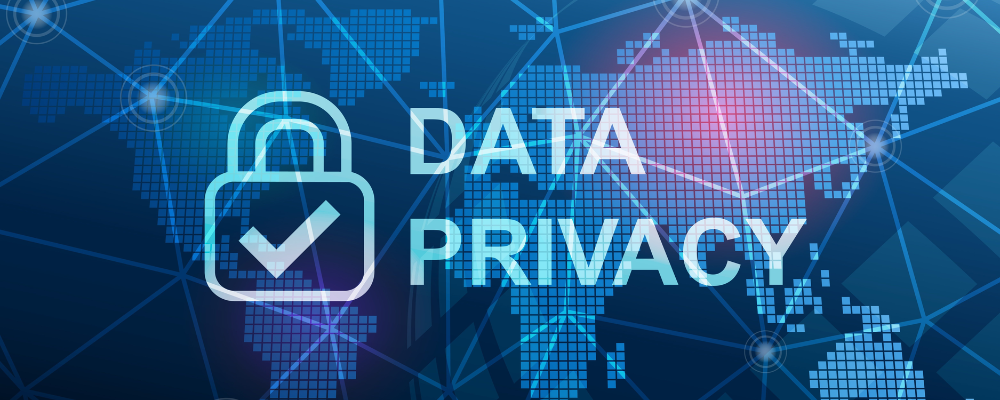In an era marked by the exponential growth of digital technologies and the omnipresence of online interactions, the landscape of lead generation has evolved significantly. Businesses have increasingly relied on data-driven strategies to identify and engage potential customers. This transformation has not only enhanced the efficiency of lead generation but has also posed a profound question: What is the price of such advancement? The answer to this question lies at the heart of our exploration of “The Importance of Data Privacy in Modern Lead Generation.”
Lead generation, in its essence, is the process of identifying, attracting, and converting individuals or organizations into prospective customers interested in a product or service. In the digital age, this process often unfolds through various online channels such as websites, social media platforms, email campaigns, and more. The aim is to gather relevant information about potential customers, often referred to as leads, and nurture them through the sales funnel until they become paying clients. It’s a vital component of a company’s growth strategy, providing a steady stream of opportunities for business expansion.
The Role of Data Privacy
While the concept of lead generation is not new, the means and methods by which it is carried out have evolved substantially with the advent of technology. In today’s data-driven landscape, the role of data privacy in lead generation cannot be overstated. Data privacy encompasses the protection of individuals’ and organizations’ personal information, ensuring that it is collected, stored, and utilized responsibly and ethically.
Data privacy isn’t just a matter of compliance with legal regulations; it is a fundamental principle that shapes the relationship between businesses and their prospects. The way organizations handle the data of potential customers not only reflects their commitment to ethical practices but also directly impacts their reputation and the trust they can build with their audience.
Why Data Privacy Matters
Today, data privacy is a fundamental pillar of responsible business conduct, particularly when it comes to lead generation. Data privacy is more than just a compliance issue; it’s a crucial element to building trust with prospects, addressing legal and ethical issues, and preventing data breaches.

The cornerstone of any successful lead generation effort is the establishment of trust with potential customers. Individuals and businesses alike are increasingly cautious about sharing their personal information, given the growing concerns surrounding data security and privacy breaches. Therefore, respecting and safeguarding the privacy of prospect data is essential for building trust.
When prospects perceive that a company prioritizes their data privacy, they are more likely to engage with that organization. The chances of converting prospects into loyal customers can be significantly improved once trust is earned. Conversely, a data breach or perceived misuse of personal information can lead to a severe erosion of trust, causing prospects to disengage and potentially tarnishing a company’s reputation.
Legal and Ethical Considerations
Data privacy is not just a matter of choice; it is often enshrined in laws and regulations that businesses must adhere to. Legal penalties, fines, and reputational damage can result from non-compliance. The General Data Protection Regulation (GDPR) in Europe, the California Consumer Privacy Act (CCPA), and many other similar regulations globally have set rigorous standards for the responsible handling of personal data.
From an ethical standpoint, respecting data privacy is a moral imperative. It reflects a commitment to treating individuals and their information with dignity and respect. Businesses that operate with ethical integrity not only foster stronger relationships with their prospects but also contribute to a culture of digital responsibility.
Avoiding Data Breaches
One of the most alarming concerns in the digital age is the constant threat of data breaches. These breaches can have catastrophic consequences for a business, ranging from financial losses to severe damage to reputation and customer trust. Lead generation organizations should prioritize preventing data breaches and securing prospect information.
Data breaches can occur through various means, including cyberattacks, employee negligence, or third-party vulnerabilities. Data breaches can be prevented by ensuring robust data privacy measures, such as encryption, secure storage, and access control. Being proactive in this regard not only safeguards prospects’ information but also helps to protect the integrity and longevity of a business.

The Evolving Landscape of Data Privacy
Data privacy regulations are continuously evolving to keep pace with the digital age. Laws like GDPR, CCPA, and various international regulations set stringent standards for how businesses must handle personal data. Adhering to these regulations is crucial to avoid legal repercussions and ensure responsible data management.
Consumers’ expectations regarding their personal data have shifted dramatically. They now demand greater transparency and control over how their information is collected and used. Businesses must adapt to meet these changing expectations or risk losing trust and customers. Keeping a positive relationship with consumers in the modern era requires understanding and responding to these evolving demands.
Benefits of Prioritizing Data Privacy
Enhanced Reputation: Prioritizing data privacy can significantly enhance a business’s reputation. When customers and prospects perceive that their personal information is handled with care and respect, it builds trust and goodwill. An organization’s positive reputation not only attracts new customers but also retains existing ones, contributing to its overall success.
Improved Data Quality: Emphasizing data privacy often leads to better data quality. When customers have confidence in how their information is used, they are more likely to provide accurate and up-to-date details. This improved data quality enhances the effectiveness of lead generation efforts, as businesses can better target and engage with prospects, ultimately increasing the chances of conversion.
Higher Conversion Rates: One of the most direct benefits of prioritizing data privacy is the potential for higher conversion rates. When prospects trust that their data is safe, they are more inclined to engage with a business’s lead generation activities. This increased engagement can translate into more successful conversions, ultimately driving business growth and profitability.

Data Privacy Best Practices
- Obtaining explicit consent from individuals before collecting their data is a fundamental best practice. Businesses should clearly communicate why the data is being collected, how it will be used, and for how long it will be retained. Transparency builds trust and ensures that individuals understand and agree to the terms of data processing.
- Data minimization involves collecting only the data necessary for the intended purpose. This practice reduces the risk of exposure and potential harm in case of a data breach. Businesses can streamline their operations and protect individual privacy more effectively by limiting the data collected to what is necessary.
- Implementing robust security measures is critical to protect data privacy. Encryption, access controls, and secure data storage are all part of this process. Security measures help safeguard data against unauthorized access, breaches, and other threats, ensuring that sensitive information remains confidential and protected from potential risks.
Tools and Technologies for Data Privacy
Data encryption is a crucial technology for data privacy. It involves encoding data in a way that can only be deciphered by authorized parties. Encryption guarantees that data, even when intercepted or accessed by unauthorized parties, stays indecipherable and protected. Advanced encryption methods are essential for protecting sensitive information in transit and at rest.
Protected data storage solutions offer a secure setting to house confidential information. This technology includes secure servers, cloud storage, and data centers that implement robust security protocols to safeguard data against unauthorized access, breaches, and physical damage. Maintaining the confidentiality and integrity of stored information is ensured by secure data storage, which also serves as a safeguard against data loss.
Data access control technologies and tools enable organizations to manage and restrict who can access specific data within their systems. These measures frequently encompass user verification, access based on roles, and permission configurations. By implementing data access control, businesses can ensure that only authorized personnel can access and manipulate data, minimizing the risk of data leaks and breaches.
The Human Element in Data Privacy
The human component plays a pivotal role in ensuring data privacy. Employee training plays a pivotal role in promoting a culture of data security and privacy within an organization. Training programs educate employees about the importance of data privacy, the company’s policies and procedures, and best practices for handling sensitive information. Well-trained employees are less likely to make errors that could lead to data breaches, making them an essential component of a robust data privacy strategy.

Insider threats refer to the risk posed by individuals within an organization who have access to sensitive data and may misuse or mishandle it. These threats can be intentional, such as data theft by a disgruntled employee, or unintentional, like an employee accidentally sharing confidential information. Addressing insider threats encompasses the implementation of access controls, continuous monitoring of user activities, and the establishment of a mechanism to report and respond to suspicious behavior. Recognizing the potential for insider threats is a key element of data privacy, as it ensures the security of data from within the organization.
Challenges and Risks
Compliance with data privacy regulations is a substantial challenge for businesses engaged in lead generation. The regulatory landscape is complex and continually evolving, making it challenging to stay current with the latest requirements. Compliance challenges may include:
Multinational Regulations: Many businesses operate in multiple jurisdictions, each with its own set of data privacy regulations. Ensuring compliance across various regions can be daunting, as businesses must navigate the intricacies of different legal frameworks.
Changing Regulations: Data privacy laws are subject to amendments and updates. Staying abreast of these changes and adapting policies and practices accordingly can be time-consuming and resource-intensive.
Consent Management: Obtaining and managing explicit consent from individuals can be tricky. Businesses must clearly explain how data will be used and provide individuals with the option to opt in or opt out, all while ensuring that consent records are accurate and up-to-date.
Data Transfer: Transferring data across borders may involve complex legal requirements, especially when personal data is moved from a country with stringent privacy laws to one with less stringent regulations. Businesses must navigate these challenges while adhering to legal constraints.
Accountability: Many data privacy laws require businesses to demonstrate their compliance and accountability. This necessitates maintaining detailed records of data processing activities, conducting risk assessments, and implementing privacy impact assessments.
Balancing Data Collection and Privacy
Balancing the need to collect data for lead generation with the imperative of safeguarding data privacy presents a substantial risk. Striking this equilibrium is crucial for maintaining a productive lead generation strategy while respecting individual privacy rights. The challenges and considerations in balancing data collection and privacy include:
Data Minimization: Collecting only the data that is necessary for the intended purpose is a fundamental principle. Balancing the need to gather enough data for lead qualification while minimizing data collection to honor privacy is a delicate equilibrium to maintain.
Transparency: Businesses must be transparent about the information they collect, why they collect it, and how it will be used. Achieving transparency while not overwhelming prospects with extensive legal jargon is a constant challenge.
Consent: Obtaining informed and explicit consent is vital, but ensuring it doesn’t hinder the lead generation process requires a fine-tuned approach. Striking a balance between obtaining consent and making the process seamless for prospects is an ongoing challenge.
Data Retention: Determining how long data should be retained is another challenge. Businesses must balance the need to keep data for future marketing efforts with individuals’ rights to have their data deleted upon request.

Data Security: Balancing the need for data accessibility with robust security measures is essential. Businesses must ensure that data remains safe from both external threats and insider risks without compromising the ease of access for authorized personnel.
Conclusion
The importance of data privacy cannot be overstated in the modern world of lead generation. As we’ve explored throughout this article, data privacy is not merely a legal requirement; it is a foundational element of trust, ethical responsibility, and the sustainability of businesses in the digital age. Prioritizing data privacy leads to enhanced reputations, improved data quality, and higher conversion rates. It also helps businesses navigate the evolving regulatory environment and mitigate the risks associated with data breaches. In a world where consumer expectations and data privacy regulations continue to evolve, businesses that excel in protecting and respecting the privacy of their prospects are not only on the right side of the law but are also well-positioned for long-term success and growth.




